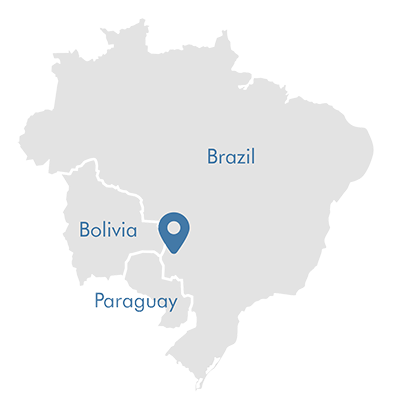BRAZIL, BOLIVIA & PARAGUAY, SOUTH AMERICA
Pantanal
Covering a region of 140.000 km², the Pantanal is the world's largest wetland. The Pantanal is shared by three countries: two thirds in Brazil, one third in Bolivia and Paraguay. During the rainy season, the Paraguay River and its tributaries inundate large areas. In the dry season, the region turns into a savannah shimmering with heat. Green vegetation then can be found only in lake regions and river plains. Because of these dynamics and its size, the Pantanal is one of the most important wetlands in the world and is of enormous importance for halting the loss of biodiversity and mitigating the effects of climate change.
What makes it special
The Pantanal is the largest inland wetland in the world.
Protection status
· UNESCO Biosphere Reserve
· UNESCO World Heritage Site
· IUCN Category II – National Park
· Ramsar Sites 602,1089,1864,1270,2363, Wetlands of International Importance
· Private Natural Heritage Reserve (RPPN)
· Federal Conservation Unit of Integral Protection (Decree n° Nº 86.061/81) - Taiamã Ecological Station
And many more...

Biodiversity
The great variety of large species is immense and comparable to that of Africa. Among them are the Spectacled Caiman, the Yellow Anaconda, the Plains Tapir, Jaguar, Rheas, White-necked Heron, Jabiru as well as huge flocks of waders and waterfowl from North America that winter in the Pantanal wetlands.

Threats
The Pantanal is in great danger. A growing number of environmental pressures, ranging from unsustainable infrastructure development to untreated waste pollution, threaten to destabilize the regional ecosystem and the benefits it provides people and wildlife. Deforestation in the Pantanal is increasing, with more than 12% of the forest cover already lost. At the current rate, the Pantanal’s native vegetation will disappear by 2050 if no measures are taken to combat this trend.
The Pantanal was assigned as Threatened Lake of the Year by the Living Lakes Network in 2007 and again in 2021.

Our Work
ECOA – Ecology and Action is a non-governmental organization that was founded in 1989, in Campo Grande (MS, Brazil). The organization aims to promote actions to preserve the environment, combines scientific research and political action and involves communities, educational and research institutions, government institutions and other non-governmental organizations. They promote the environmental and economic sustainability of traditional activities at the Pantanal, such as the extraction of native species carried out by women from Pantanal in different regions; Work to contain destructive large infrastructure builds, such as waterways and hydroelectric plants; Promote the conservation of pollinating species; Permanent activities to combat big wildfires, working to form volunteer firefighters brigades.



